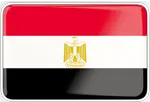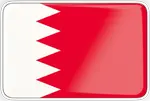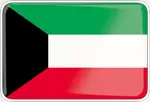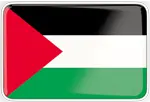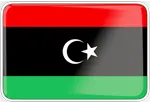Stay updated on the gold price in Iraq today with real-time data on Goldyza.
Gold Rate in Iraq
24K Gold
210,627 IQD

21K Gold
184,297 IQD

18K Gold
157,967 IQD

1kg Gold
210,627,000 IQD

Last Update:
Feb 4, 2026 / 4:01 am Iraq Time
Gold Price in Iraq Today
| Gold (1g) | Current Price | Change |
|---|---|---|
| 24K Gold | 210,627 IQD | + 2,697 |
| 22K Gold | 193,082 IQD | + 2,474 |
| 21K Gold | 184,297 IQD | + 2,357 |
| 18K Gold | 157,967 IQD | + 2,016 |
| 14K Gold | 122,865 IQD | + 1,571 |
| 12K Gold | 105,320 IQD | + 1,348 |
| 10K Gold | 87,762 IQD | + 1,126 |
| 9K Gold | 78,990 IQD | + 1,008 |
| 8K Gold | 70,205 IQD | + 891 |
Precise Analysis of Today’s Gold Prices in Iraq
Historical chart of the 21-karat gold price in Iraqi dinar (IQD).
More:
–
In Iraq, gold represents a value that transcends its status as a mere precious metal; it is an integral part of the culture, an adornment passed down through generations, and a safe haven for investment and savings in times of hardship. Whether you are looking for an artistic piece to add to your jewelry collection or seeking to invest in gold bars and liras, understanding the intricacies of the Iraqi gold market ensures you make a wise and satisfying purchasing decision.
This page provides a regular update on gold prices in Iraq, to be your primary reference before heading to the historic gold markets in Baghdad, Erbil, Basra, or other Iraqi cities.
Expert Tips for Those Looking to Buy Gold in Iraq
Buying gold is a unique experience, and to ensure you get the best value for your money, here is a set of practical tips tailored for the Iraqi market:
(1) Determine Your Goal for Buying First
Before anything else, you must define the primary purpose of buying gold.
- For Savings and Investment: It is advisable to opt for pure gold bars (24 karat) or liras (gold coins). These options are characterized by low or non-existent craftsmanship fees (“Al-Masna’iya”), making their value directly linked to the global price of raw gold.
- For Adornment and Occasions: Here, the focus is on gold artifacts and jewelry (21 karat is the most common and desired in Iraq). In this case, design and craftsmanship factors become an essential part of the piece’s value.
(2) Understand “Al-Masna’iya” and Negotiate It
“Al-Masna’iya,” or craftsmanship fees, is the amount added to the price of raw gold to cover the cost of designing and manufacturing the piece. In Iraq, there is no fixed percentage for craftsmanship; it varies significantly based on:
- Design Complexity: The more details and engravings on the piece, the higher its craftsmanship fee.
- Type of Gold: Imported gold (especially from the Gulf and Turkey) often has higher craftsmanship fees than local Iraqi gold.
- The Jeweler: Prices differ from one jeweler to another.
- Practical Tip: Always ask for the net price per gram “without craftsmanship” and then ask for the “craftsmanship fee” separately. This gives you a clear understanding of the total cost and allows you room to negotiate the craftsmanship price.
(3) Know the Karats and Focus on the Most Common Ones
Each karat has a different purity level, and in the Iraqi market, you will primarily find:
- 24 Karat: This is pure gold with a purity of 99.9%, used mainly in bars.
- 21 Karat: This is the “king of karats” in Iraq, the most popular and desirable for jewelry and goldwork, as it perfectly balances an attractive golden color with durability.
- 18 Karat: Used in some modern designs that contain fine details or gemstones.
(4) Check the Hallmark and Stamp
Every legal piece of gold in Iraq must be stamped with a clear hallmark indicating the karat. Use a magnifying glass (often provided by the jeweler) to check for the presence and clarity of the stamp. The hallmark is your governmental guarantee of the gold’s purity, so do not buy any piece that does not bear a clear stamp.
(5) Request a Detailed Invoice and Keep It
The invoice is your official document that proves your ownership of the piece and protects your rights. Make sure the invoice includes the following details:
- Name and address of the jeweler’s shop.
- Date of purchase.
- A precise description of the piece (e.g., necklace, bracelet, etc.).
- Weight of the piece in grams.
- Gold karat.
- The total price paid, clarifying the raw gold price and craftsmanship fees if possible.
This invoice is crucial if you wish to sell the gold piece in the future.
(6) Choose a Trusted Jeweler
A good reputation is a jeweler’s most valuable asset. Ask friends and acquaintances for their recommendations and deal with shops known for their history and integrity in the market. A trustworthy jeweler will not hesitate to weigh the piece in front of you and answer all your inquiries with clarity and transparency.
(7) Avoid Pieces with Many Stones for Investment Purposes
If your primary goal is savings, pieces that contain a lot of gemstones or stones are not the ideal choice. When selling these pieces in the future, only the net gold will be weighed, and you will lose the value of these stones and the cost of setting them.

